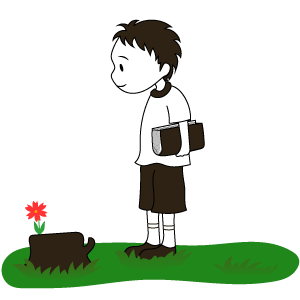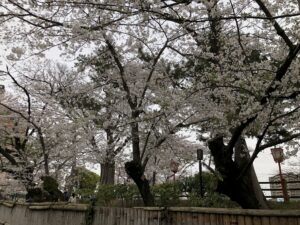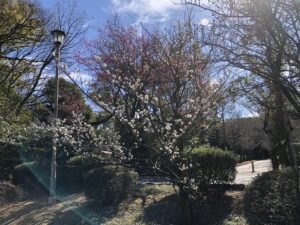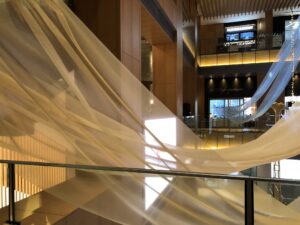I have no particular hobby, although I have a number of distractions, such as sleeping, dawdling, and looking at clouds. It has been that way since I was a little girl, and I really don’t have any hobbies that I can tell people about.
This caused me a lot of trouble when I was job hunting a long time ago, when I was writing my resume. Of course, it is a resume, so it has to be read by the hiring manager, and it has to be of interest to them. This is even more important when it comes to an important job interview.
The other sections of the resume, strengths and weaknesses, were easy to write. All you have to do is follow the template. The “hobbies” section is still a problem. But what are hobbies, anyway?
Simply put, it is something you like to do, something you are passionate about. But do we really want others to know about our hobbies?
Of course, if it is a hobby that you can proudly tell everyone about, such as baseball, tennis, skiing, etc., that is fine.
If you can also boast in the “Specialties and Qualifications” section that you won an inter-high school championship or passed the first level of a batch test in skiing, that would be great. That alone will be eye-opening to the hiring manager.
The problem, however, is when it is something you really like and have devoted all your energy to, but it is something (or an act) that you cannot boast about to others.
If you write “baccarat” or “picking up girls,” people may understand your humanity, but you will be out of the picture in another sense.
Still, if you manage to fill out the column, most people will write the golden three-top: “reading,” “listening to music,” and “watching movies” (of course, some people really like them).
However, in today’s hiring interviews, even if “reading” is your hobby, they don’t even ask you the title of the book, so that alone doesn’t give any sense of your personality. The employer probably thinks, “Oh, so you don’t have any hobbies,” or “You have a hobby that you don’t like to talk about. Or, it means you have a hobby that you are reluctant to talk about.
If that is the case, how about this, for example, leaving the technical part of how to make employers understand your humanity favorably to job hunting support sites?
If you read books, you might say, “I’m on my third time through the complete works of Peter Drucker.”
If you want to listen to music, “Listen to Bach’s cello sonata played by Yo-Yo Ma every morning.
For movies, a Woody Allen movie set in New York City.
For movies, “a Woody Allen movie set in New York City.
This will give the employer a concrete image of what you like to do, make them think that you really like it, and make it easier to broaden the conversation.
After all, as a matter of social common sense, the hobbies section of a resume should be something (or an activity) that everyone likes, and this common understanding should not be broken.
If that is the case, then “writing historical pure literature,” “presiding over a radical underground theater group,” and “chasing underground idols” are all negative images. This is probably a case of being too specific.
In my case, when I was job hunting, I kept saying “writing novels” all the time in job interviews, let alone in the “hobbies” section.
In fact, it was no wonder, since I had really only written novels for the past four years.
It was nothing to be ashamed of, and I felt that if they were going to drop me for that, they should drop me (thinking back on it now, I completely underestimated them).
So, even though I managed to get through the application screening process, thanks to that, I kept getting dropped at interviews. At that time, writing novels was such a minor job, and in a sense, people had an antisocial image of me.
Even when I was failing at all the interviews, the word “novel-writing” seemed to be of interest to employers, and they would always ask me at the interview, “What kind of writing do you do?
What kind of things do you write? Have you ever won any awards? and “Will you continue writing after you join the company?” I was always asked, “What kind of things do you write?
I answered honestly and truthfully. I answered honestly, “It’s pure literature,” “No,” and “Of course I will continue to write. In a joking tone of voice, he asked me, “What if you win an award? I answered immediately, “I am going to quit. There was no way I could pass an interview.
However, as the job-hunting period drew to a close, I began to feel a bit nervous and thought that I would have to compromise on “reading,” “listening to music,” and “watching movies” (without considering the other reasons why I was rejected).
However, after much thought, I decided to choose “nothing in particular” for the hobbies section.
This was not because I was compromising on reality, but because I had decided to make “writing novels” my life’s work, not just a hobby. I decided to make “writing” a life in itself. The result of this decision was “nothing in particular.
And it was only after I decided on “nothing in particular” that I was asked, “Are you sure you don’t have any hobbies?” I began to answer, “I would like to learn after I join the company,” or “I would like to learn my job first. This is not a lie, nor is it a self-disguise.
Somehow, this worked out unexpectedly well. I received one job offer after another. I would later learn that this was one of the proper methods of job interviewing.
I learned later that this was one of the methods used in job interviews.
If I am ever able to work for your company, please tell me all about it. In other words, the company wants you to put your work first and foremost, without worrying about your hobbies. I really wish I had realized this sooner.
I really wish I had realized this earlier.
Since then, even in my daily life, when other people ask me, “What are your hobbies? I have never had any good hobbies.
I have started to answer, “Nothing in particular. Most of them are happy to talk to me one way or the other. It makes the conversation more interesting.
Hobbies are not something that you can define for yourself, but rather, looking back on your past, they may be the things (activities) that you spent most of your time doing outside of work.
When you are not sure about your hobbies. It is obvious when you look back in the past. The thing you spent the most time on was your hobby. Even if it was a paid game on a smartphone, that’s fine. It’s a hobby after all.
See you later.





-192x300.png)






